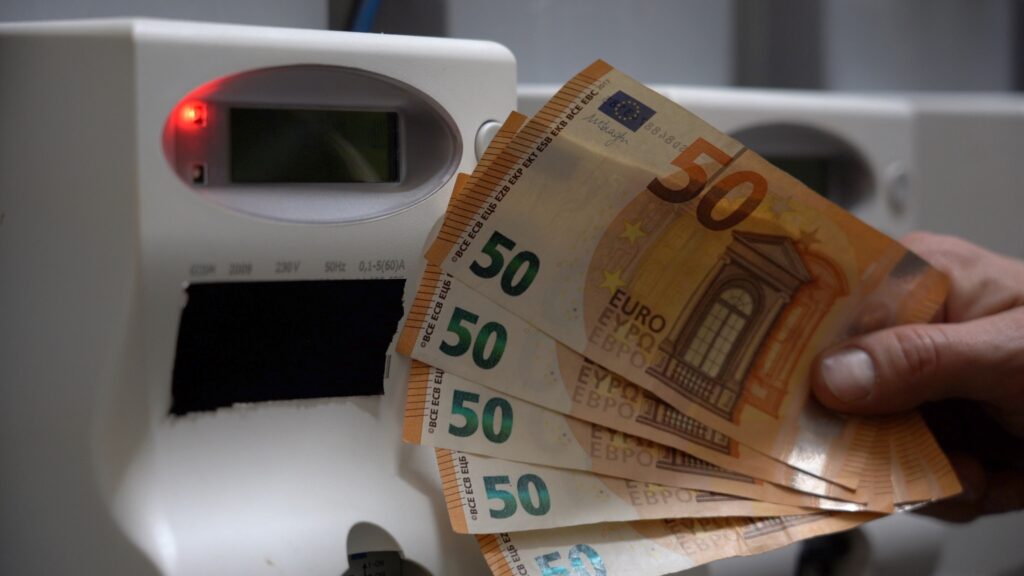Based on the trend in costs and a comparison with the current state of affairs (August wholesale market prices for methane at over 200 euros per megawatt hour or over 2 euros per cubic metre; electricity with the single national average price at 300 euros per megawatt hour), IRCAF (Institute for research on consumption, environment, and training) has made an alarming hypothesis (gas on average at 125 euros per megawatt hour , when in 2020 it was 39 euros, and in previous years on average 60 euros).
This is the scenario, according to IRCAF, despite the government’s involvement with yet another aid directive on August 6. Measures that amount 52 billion at the end of 2021 when added to the earlier ones and the last three months of this year, but will not be enough. Following the elections on September 25, the new administration will have to get involved once more.
According to the IRCAF, a typical home of 1,400 cubic metres will spend 1,382 euros annually in the first three quarters of 2022; this is a 142% increase over the same period in 2020. Based on an average household’s use of 2700 kilowatt hours, the cost of one kilowatt hour of electricity in the protected home as of 30 September is 41.51 euro cents per kilowatt hour (of which 31. 17 cents is the cost of raw materials).
Given the present single national average price of up to 70 cents per kilowatt hour on October 1, we will record the following expense in the scenario of a further increase in tariffs: Compared to the first three quarters of 2022, 872
According to the IRCAF, the average family will spend 3,454. 5 euros year when the gas and energy bills for 2022 are added up. Furthermore, if we add that inflation in Europe in July rose to 8. 9% in the eurozone (to 9. 8% in the EU; 10.
With inflation expected to reach over 10% in the autumn, a recession brought on by rising energy and raw material prices, a decline in demand that will damage many industries, an increase in poverty, and a possible re-explosion of the pandemic after the summer, there is a possibility of a perfect storm. The scenario will quickly get worse.
In order to successfully navigate the upcoming winter, Germany’s Economy Minister, Robert Habeck, has set a target of saving between 15 and 20% of gas consumption: During a meeting with citizens in Berlin on the occasion of the governments open days, he stated, “If we succeed, we have a decent chance of surviving the winter with the announced measures.
Although Habeck admitted that savings of between 15 and 20% are significant, she emphasised that at this time, businesses and individual customers must contribute. The Greens minister stressed that there is no scenario in which Germany runs out of gas in the winter; rather, the question is how much gas will it have once Russia has used up its reserves.
Habeck also recalled that, even before the conflict in Ukraine began, Germany still got around half of its gas from countries like Norway, the Netherlands, and Belgium, and that in the interim, it had made tremendous strides in streamlining the flows from these sources. Villages.
The minister mentioned a few of the Berlin government’s initiatives, including the development of a system to reward businesses that conserve gas and the building of liquefied gas regasification terminals on the German coast, which he later hinted might be used for hydrogen imports.
The minister added that if the tanks were full, Germany could meet its gas needs for 2.5 months without importing anything.
Instead, it is opposed to the idea of resuming the Nord Stream 2 gas pipeline’s certification procedure, which was suspended to put pressure on Russia, in order to reduce the flow via Nord Stream 1. As Habeck said, putting this second pipeline into operation would require surrendering to Putin and admitting that he is correct, but there is also no guarantee that supplies through Nord Stream 2 won’t be stopped for political reasons.
Starting on October 1st, there is a possibility that gas prices will double. During a two-year period, annual spending increased by 178%.

